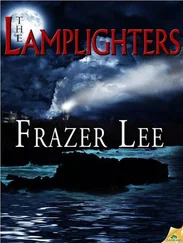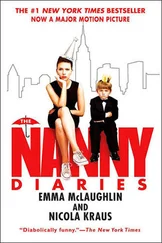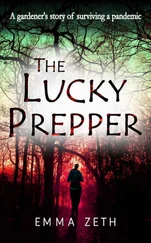‘Get off,’ Helen said absent-mindedly, the dog’s whiskers brushing her palm; ‘I’ll take you out after.’ She would go up to the woods, walk her in the dank wet mulch. It calmed her to think about that: that there would be an after.
The writer carried a canvas bag, which she pictured full of receipts and cigarette lighters; she could see him living in a house with the beds unmade and cats asleep on the counters. He’d have had Weetabix for breakfast, something that came out of a torn box, but he’d run out of milk so a squirt of water from the tap. A fag while he thought about the Maiden Rock and scribbled down the questions he wanted to ask.
All these years later, she still did it. Made an assessment on sight, before any of the rest, the yardstick against which she held every new person. Had they lost someone, as she had? Did they understand what that felt like? Were they on her side of the window, or the other, impossibly distant one? She didn’t suppose it mattered if he had or he hadn’t: he was a writer; he could imagine it.
Though on that point Helen was sceptical: his ability to imagine what could not be imagined. She thought of it as falling. Weightless. Disbelieving. Waiting to be caught but nobody ever did, for years and years and on it went and down she fell and there were no resolutions, no clarity or closure. That had become a fashionable word these days – closure – for people whose relationships failed or who got fired from their jobs, and she thought how those were relatively straightforward things to move on from; they didn’t push you over the ledge and let you drop. So it was to lose a person to the wind. No trace, no reason, no clue. What could Dan Sharp, whose game was battleships and weaponry and men who drank themselves dumb in the dockyards, imagine of that?
She yearned to reciprocate with others of her kind: to identify them and be identified in return. She would be able to tell their loss in their faces, not an obvious thing, some bitterness or resignation, those ghouls she had tried for so long to throw off. She’d say, ‘You know, don’t you? You know ,’ and it was anyone’s guess what they’d offer in return, but if there wasn’t that to come of it, some upside in the matter of kindness and understanding, then what was it for?
In the meantime, the ghouls continued to slip between her clothes in the wardrobe, making her shiver when she got dressed in the morning, or she discovered them crouching in corners, picking the skin off their thumbs. She had no certainty, said the therapists (it was a while since she had visited them), and certainty was at least a millimetre one could get one’s nails around.
Here he was then, opening the gate. He fumbled closing it behind him because the latch was rusted. ‘Scarborough Fair’ played on the kitchen radio; it made Helen woozy, the melancholy of it, all that about sea foam and cambric shirts and true love sourer than sweet. Wild thoughts entered her head, from time to time, about Arthur and the others, but on the whole, she’d learned to keep them at bay. What secrets a lighthouse could tell. The men’s were buried underwater, like hers.
Helen remembered her husband in pieces, parched scales that blew about like leaves coming in through the kitchen door. Sometimes she would catch hold of one and be able to look at it properly, but mostly she watched those leaves blowing about her ankles and wondered how on earth she’d find the energy to sweep them up.
Nothing changed, in the aftermath of loss. Songs kept getting written. Books kept getting read. Wars didn’t stop. You saw a couple arguing by the trolleys at Tesco before getting in the car and slamming the door. Life renewed itself, over and over, without sympathy. Time surged on in its usual rhythms, those comings and goings, beginnings and ends, sensible progressions that fixed things in place, without a thought to the whistling in the woods on the outskirts of town. It began as a whistle, expelled from dry lips. Over the years it sharpened to a bright, continual note.
That note sounded now, with the ringing of the doorbell. Helen put her hands in the pockets of her cardigan and rolled the lint between her fingers. She liked how it felt, rolling it there right under her nail, a painful thing that wasn’t quite painful.
HELEN
Come in. Do come in. I’m sorry it’s a mess. It’s kind of you to say it isn’t, but really it is. Can I make you tea, coffee? Tea, lovely – milk and sugar? Of course, everyone has milk and sugar these days. My grandma used to take hers black with a slice of lemon; they don’t do that much any more. Cake? I’m afraid it isn’t homemade.
So, you’re an author, how fascinating. I’ve never met an author before. It’s one of those things everyone says they could do, isn’t it, writing a book. I did think about it myself but I’m not a writer – I can think of what I want to write but it’s difficult to get that across to other people and I suppose that’s the difference. After Arthur died everybody said it would be a good thing, to put my feelings down on paper so they were out of my head. You must believe that, in being creative yourself, to have something creative to do makes you feel like a more rounded person? Anyway, I never did write anything. I’m not sure what I would have written that I’d want a stranger to read.
Twenty years, my goodness, it’s hard to believe. May I ask why it is you’ve chosen our story? If you’re hoping my husband’s like the macho men in your books and I’m going to give you a tale about missions and shipwrecks or whatever it is, you’ll have to think again.
Yes, it’s intriguing, if you believe the hearsay. For me, being on the inside, and being so close to it, I don’t think of it like that; but you shouldn’t feel bad about that, no, you shouldn’t. I’m fine to talk about Arthur; it keeps him with me that way. If I tried to pretend it hadn’t happened, I’d have hit trouble a long time ago. You have to admit what happens in your life.
I’ve heard it all, over the years. Arthur was abducted by aliens. He was murdered by pirates. He was blackmailed by smugglers. He killed the others, or they killed him, and then each other and then themselves – over a woman or a debt, or a washed-up treasure chest. They were haunted by ghosts or kidnapped by the government. Threatened by spies or gobbled by sea serpents. They went lunatic, one or all of them. They had secret lives no one knew about, riches buried on South American plantations you could only find by a cross on a map. They sailed off to Timbuktu and liked it so much they never came back… When that Lord Lucan disappeared two years down the line, there were those who said he’d gone to meet Arthur and the others on a desert island, presumably with the poor beggars who flew through the Bermuda Triangle. I mean, honestly! I’m sure you’d prefer that, but I’m afraid it’s all ridiculous. We’re not in your world now, we’re in mine; and this isn’t a thriller, it’s my life.
Is five minutes OK? As in the minutes of a clock, if you think of the cake as a clock, that’s how big the piece is I’m cutting. Pass your plate then; there we go. I must say I’ve never got the hang of baking. It seems the thing for women, though I don’t know why. Arthur was better at these things than me. Did you know they learned to bake bread as part of their training? You learn all sorts being a lighthouse keeper.
Of all the towers, I think the Bishop has the best name. It sounds very stately to me. It makes me think of that chess piece, quiet and dignified. Arthur was extremely good at chess; I never played him on that account because we both like to win, and I wasn’t used to ceding to him or him to me. As a keeper he had to be enthusiastic about cards and games because there’s so much time to spare. It’s a bonding thing as well, a game of cribbage or a hand of gin rummy. And the tea! If a keeper’s skilled at any one thing, it’s drinking tea. They’d get through thirty cups a day. On a lot of stations, the only rule was, if you’re in the kitchen, you make the tea.
Читать дальше












